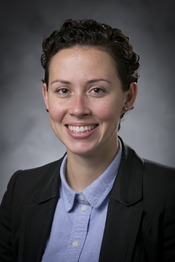Program Information
Improving the MedPhys Match and Interview Process: Results From An Independent Survey of Applicants and Programs
A Rodrigues1*, T Juang2 , S Vimolchalao3 , J Burmeister4 , K Hendrickson3 , (1) Duke University Medical Center, Durham, NC, (2) Stanford Cancer Center, Stanford, CA, (3) University of Washington, Seattle, Washington, (4) Wayne State University School of Medicine, Detroit, MI
Presentations
SU-F-P-16 (Sunday, July 31, 2016) 3:00 PM - 6:00 PM Room: Exhibit Hall
Purpose: To provide recommendations from applicants and program directors on improving the Medical Physics Residency Matching Program (the “MedPhys” Match) and the associated interview process.
Methods: A survey gauging interview and match experience was emailed to all applicants and program directors registered for the inaugural 2014/15 MedPhys Match. Detailed questions included satisfaction with the match experience, logistics and cost of interviewing for applicants, and specific suggestions to improve the match.
Results: 109 out of 402 applicants and 42 out of 77 programs completed the surveys. Of these applicants, 92 submitted rankings and 52 matched. 77% of matched applicants and only 7% of unmatched applicants were satisfied with the experience. Generally, 15% of applicants stated that the match needs no improvement, while 79% stated that it could use minor or major improvement. Primary suggestions from applicants included coordination of interviews into geographic regions and a fixed date by which interview invitations/dates are announced. 98% of programs were satisfied with the experience, with 75% stating that no improvements are needed, and 25% stating that the match could use minor improvement. Suggestions from programs included coordination of interviews in geographic locations, an earlier match date, and quicker turnaround on offer acceptances.
Conclusion: Overall, matched applicants were satisfied and programs were very satisfied with the match experience. It is unclear whether the dissatisfaction among unmatched applicants is largely attributable to the process itself or to the fact that they may be shut out of the board certification process. Since a majority (79%) of applicants but only a minority (25%) of programs felt that the current match requires minor or major improvement, our applicants should be considered a valuable source of suggestions for improvement. Addressing these concerns early on may lead to more transparency and an improved experience for applicants and programs.
Contact Email:

